The Connection Between Mental Health and Self-Care
In today’s fast-paced, always-on world, it’s no surprise that conversations around mental health and self-care have gained widespread attention. More people than ever are recognizing that mental well-being is just as important as physical health. Yet despite this growing awareness, many still struggle with how to nurture their minds in meaningful and sustainable ways. That’s where self-care comes in—a powerful, proactive practice that supports and strengthens mental health.
But what is the real connection between mental health and self-care? How can we move beyond trendy buzzwords and truly integrate self-care into our daily lives to improve our mental and emotional wellness? This blog explores these questions, offering insights, research-backed information, and practical tips to help you make the most of your mental health journey.
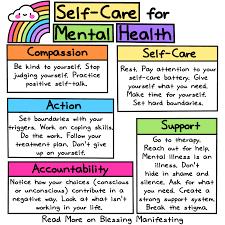
Understanding Mental Health
Before diving into the role of self-care, it’s important to understand what we mean by “mental health.” According to the World Health Organization, mental health is “a state of well-being in which an individual realizes their own abilities, can cope with the normal stresses of life, can work productively, and is able to make a contribution to their community.”
Mental health encompasses emotional, psychological, and social well-being. It affects how we think, feel, and behave—and it influences how we handle stress, relate to others, and make choices. Just like physical health, mental health exists on a spectrum and can fluctuate throughout life due to various factors such as life experiences, genetics, environment, and lifestyle.
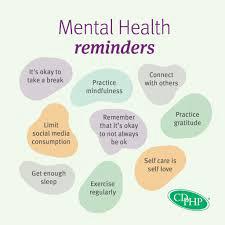
What is Self-Care?
Self-care is any activity we intentionally do to take care of our mental, emotional, and physical health. Contrary to popular belief, self-care isn’t just about pampering yourself with spa days or indulging in comfort foods. While those can be part of it, effective self-care is more holistic. It includes everything from setting healthy boundaries and getting enough sleep to practicing mindfulness, seeking therapy, and engaging in physical activity.
Self-care isn’t selfish—it’s essential. When we take the time to care for ourselves, we build a foundation that allows us to function better in our personal and professional lives. Importantly, self-care plays a critical role in maintaining and improving mental health.
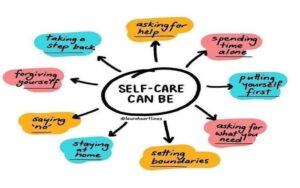
The Link Between Mental Health and Self-Care
The connection between mental health and self-care is both direct and profound. Here are a few key ways in which they intersect:
1. Stress Management
One of the most immediate mental health benefits of self-care is stress reduction. Chronic stress can lead to anxiety, depression, and even physical health issues like high blood pressure. Engaging in regular self-care practices—like deep breathing exercises, journaling, or physical movement—can reduce stress hormone levels and promote a sense of calm.
2. Improved Emotional Regulation
Self-care encourages emotional awareness and balance. When you routinely check in with yourself and engage in activities that ground and relax you, you’re better equipped to manage intense emotions. This can reduce emotional reactivity, enhance mood stability, and support a more positive mental state overall.
3. Preventing Burnout
Burnout is a state of emotional, mental, and often physical exhaustion caused by prolonged stress. It is particularly common among caregivers, healthcare workers, and high-achievers. Self-care is one of the most effective antidotes to burnout. By regularly taking time for yourself, you create the opportunity to recharge and restore, preventing exhaustion from taking over.
4. Building Resilience
Resilience is the ability to bounce back from adversity. Self-care strengthens this ability by promoting emotional regulation, self-awareness, and coping skills. A person who prioritizes self-care is more likely to face life’s challenges with clarity and calm, rather than becoming overwhelmed.
5. Fostering Self-Compassion
Many mental health challenges are rooted in negative self-talk and feelings of unworthiness. Engaging in self-care helps cultivate self-compassion. When you prioritize your own well-being, you send a powerful message to yourself: I matter. This mindset shift can have a lasting positive effect on your self-esteem and mental health.
Practical Self-Care Strategies for Mental Health
Creating a sustainable self-care routine doesn’t have to be complicated. Below are some science-backed and practical strategies you can start implementing today to support your mental health:
1. Prioritize Sleep
Sleep is critical for mental and emotional regulation. Aim for 7–9 hours of quality sleep per night. Create a calming bedtime routine, avoid screens before bed, and keep your sleep environment comfortable and distraction-free.
2. Move Your Body
Exercise has been shown to reduce symptoms of depression and anxiety. You don’t have to hit the gym—walks, yoga, or even dancing in your room count. The key is to move regularly and in a way that feels good for you.
3. Nourish Your Body
What you eat impacts your mood and energy levels. Aim for a balanced diet rich in fruits, vegetables, whole grains, lean protein, and healthy fats. Hydration also plays a big role in mental clarity and mood.
4. Practice Mindfulness or Meditation
Mindfulness teaches you to stay present, reducing anxiety and rumination. Just a few minutes of meditation each day can make a noticeable difference in your mental clarity and stress levels.
5. Connect with Others
Social support is a strong protective factor against mental illness. Nurture your relationships, set time aside for meaningful conversations, and don’t hesitate to reach out when you need support.
6. Set Boundaries
Learning to say “no” is a form of self-care. Protect your energy by setting healthy limits at work, in relationships, and with yourself. This creates space for rest and reflection.
7. Seek Professional Help
There is no shame in asking for help. Therapists, counselors, and support groups can provide invaluable guidance and tools for managing mental health. Regular check-ins with mental health professionals can be a vital form of self-care.
Overcoming the Barriers to Self-Care
Despite its benefits, many people struggle to practice self-care regularly. Common barriers include guilt, lack of time, or the belief that it’s indulgent or unnecessary. It’s important to challenge these misconceptions.
Think of self-care not as a luxury, but as maintenance. Just like you wouldn’t expect a car to run without fuel or regular service, you can’t expect your mind and body to function optimally without care and attention.
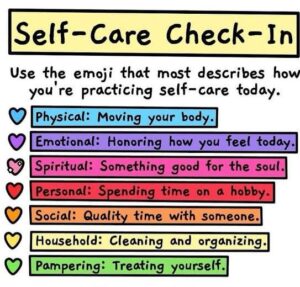
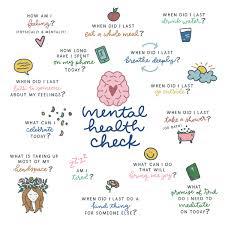
Final Thoughts
The connection between mental health and self-care is undeniable. While self-care alone isn’t a cure for serious mental health conditions, it is a critical component of overall well-being and a strong protective factor against stress, anxiety, and burnout.
By intentionally incorporating self-care into your daily routine—whether through restful sleep, joyful movement, nourishing food, or meaningful connection—you can create a more resilient, balanced, and mentally healthy life.
Your mental health matters. And taking care of yourself isn’t selfish—it’s essential.